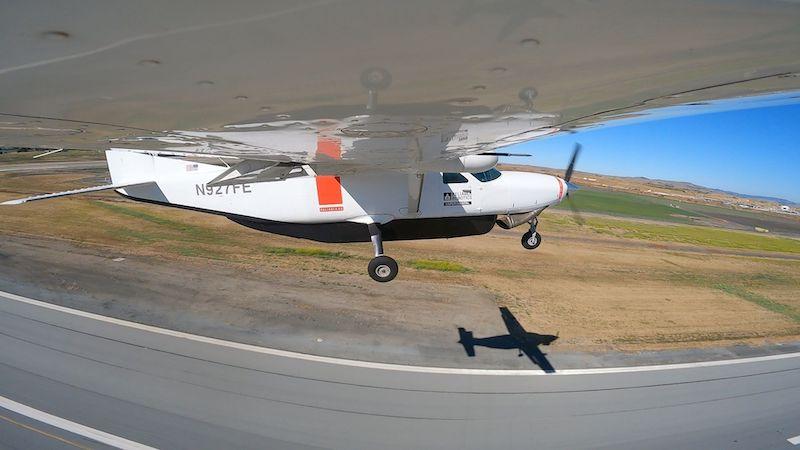
Reliable Robotics’ autonomous flight system enables continuous autopilot engagement through all stages of aircraft operation, including taxi, takeoff and landing.
The FAA has formally approved the certification plan for Reliable Robotics’ continuous autopilot engagement system, marking a critical milestone on the startup’s path to certifying the system as a retrofit for the Cessna Caravan 208.
The Project-Specific Certification Plan is a broad road map that outlines major aspects of the supplemental type certification (STC) program, including the Certification Basis, Means of Compliance, Certification Deliverables and Issue Papers. Acceptance of the document by the FAA concludes more than four years of work since Mountain View, California-based Reliable Robotics first submitted its draft certification plan to the agency, CEO Robert Rose tells the AAM Report.
“Getting the overarching certification plan approved is important because it’s formally what ties all these elements together,” Rose says. “It means that now the FAA has formally agreed to go forward with this program—and if we actually do the things that are outlined in the certification plan—then knock on wood, we should be certified at the completion of our work.”
With the certification plan now formally approved, Reliable Robotics will shift its focus to executing on the plan’s contents, including through an “immense level” of flight testing and a “whole lot” of system validation and hardware validation, according to Rose.
“Now is the part where we have to actually deliver the thing that we’ve promised,” Rose says. “There’s a huge amount of flight testing we have to do to demonstrate in the real world that this system actually works, and a big simulator component, too, as well as validation of the simulator itself. We also have to validate each hardware component individually that goes into the system, so it’s really quite a lot of work.”
Rose says he thinks the company is on track to conclude the STC process within 18-24 months, although he says the exact timing remains hard to nail down.
“We are meaningfully getting closer, but it’s still hard to predict these things because the FAA does still need to review all of our test evidence,” he says. “And while we don’t anticipate them to come up with new tests that we need to perform, there could be additional back and forth.”
After certification is achieved, Reliable plans to operate its own retrofitted Caravans through its airline, Reliable Airlines—formerly AirDialog—an Albuquerque, New Mexico-based cargo feeder carrier that operates a modest fleet of five Caravans on behalf of FedEx. Following an initial incubation period, the company plans to begin licensing its autonomous flight system out to other Caravan operators.
Beyond that, Reliable is aiming to adapt its continuous autopilot system for increasingly larger platforms—including multi-engine jets—to which the company agreed in February as part of a joint feasibility study with the U.S. Air Force.
The startup’s autonomous flight system enables continuous autopilot engagement through all stages of aircraft operation, including taxi, takeoff and landing.
The first version of the autonomous product will still have a licensed pilot in the cockpit programming the aircraft through the continuous engagement system, but they will not be manually touching any of the flight controls, Rose explains. The company is also pursuing a follow-on certification that will add enhanced detect-and-avoid and lost-link capabilities and would eventually allow the pilot to shift from the cockpit to a ground control center for fully remote operations.
“Aviation is not going to change to remote piloting overnight, but in the interim, there’s a lot that we can do to improve the safety of existing systems and existing aircraft operations,” Rose says. “Loss of control, controlled flight into terrain, fuel mismanagement, midair collisions ... these are all highly, highly preventable accident types that our autonomous system is designed to prevent.”





